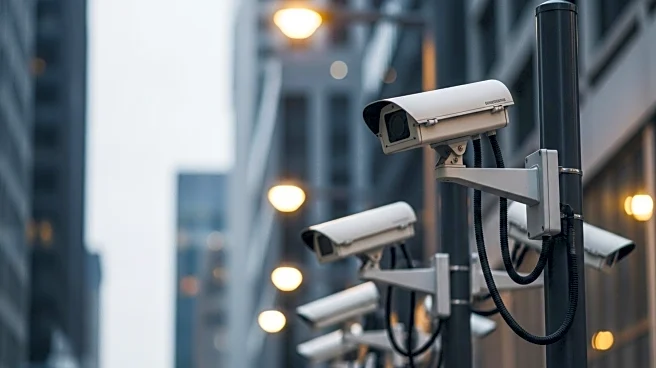What's Happening?
Effingham, Illinois, has implemented Flock Safety cameras to enhance public safety, entering a two-year contract for six traffic cameras. These cameras have been instrumental in various investigations, including recovering stolen vehicles and locating missing persons. Recently, they helped locate an elderly individual with cognitive impairment, allowing police to respond promptly and return the person safely to their family. Despite their success, Flock Safety is under investigation by the state attorney general for allegedly allowing federal border enforcement officers access to Illinois license plate data, which may violate state law. Effingham officials, including Deputy Police Chief Tom Webb, assert that no data has been shared with out-of-state entities or federal agencies for immigration or abortion-related investigations.
Why It's Important?
The use of Flock cameras in Effingham highlights the growing reliance on technology for public safety and crime prevention. These cameras have proven effective in solving criminal activities and protecting vulnerable individuals, such as those with cognitive impairments. However, the legal scrutiny surrounding Flock Safety raises concerns about privacy and compliance with state laws. The investigation by the attorney general could impact the future use of such technologies, potentially leading to stricter regulations or changes in how data is accessed and shared. This situation underscores the balance between leveraging technology for safety and ensuring the protection of citizens' rights.
What's Next?
Effingham officials are committed to complying with state regulations and are reviewing the attorney general's allegations thoroughly. The city plans to continue using the technology while ensuring full compliance with Illinois law. The outcome of the investigation could influence how similar technologies are deployed across other jurisdictions, potentially affecting partnerships between local governments and tech companies. Stakeholders, including civil rights groups and privacy advocates, may push for more transparency and stricter guidelines on data usage and sharing.










